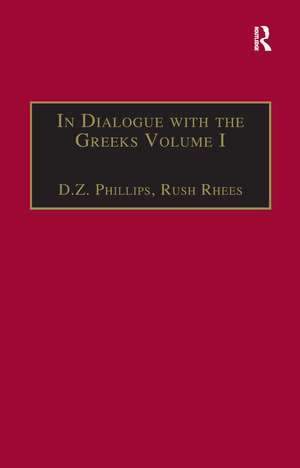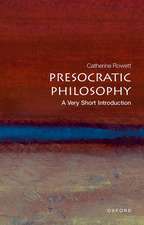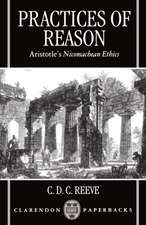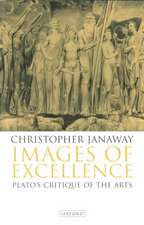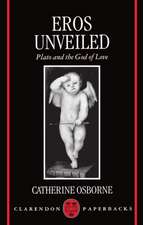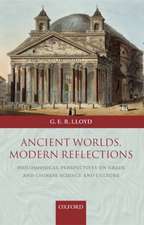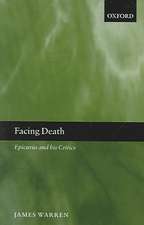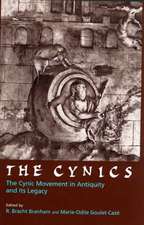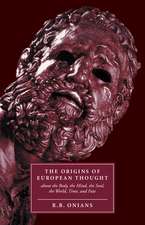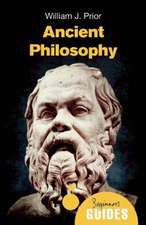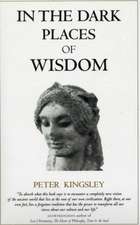In Dialogue with the Greeks: Volume I: The Presocratics and Reality: Ashgate Wittgensteinian Studies
Autor Rush Rhees Editat de D. Z. Phillipsen Limba Engleză Paperback – 11 noi 2016
| Toate formatele și edițiile | Preț | Express |
|---|---|---|
| Paperback (1) | 324.16 lei 6-8 săpt. | |
| Taylor & Francis – 11 noi 2016 | 324.16 lei 6-8 săpt. | |
| Hardback (2) | 762.10 lei 6-8 săpt. | |
| Taylor & Francis – 22 oct 2004 | 762.10 lei 6-8 săpt. | |
| Taylor & Francis – 22 oct 2004 | 769.00 lei 6-8 săpt. |
Preț: 324.16 lei
Preț vechi: 416.92 lei
-22% Nou
Puncte Express: 486
Preț estimativ în valută:
62.03€ • 64.94$ • 51.32£
62.03€ • 64.94$ • 51.32£
Carte tipărită la comandă
Livrare economică 05-19 aprilie
Preluare comenzi: 021 569.72.76
Specificații
ISBN-13: 9781138258891
ISBN-10: 113825889X
Pagini: 144
Dimensiuni: 156 x 234 mm
Greutate: 0.45 kg
Ediția:1
Editura: Taylor & Francis
Colecția Routledge
Seria Ashgate Wittgensteinian Studies
Locul publicării:Oxford, United Kingdom
ISBN-10: 113825889X
Pagini: 144
Dimensiuni: 156 x 234 mm
Greutate: 0.45 kg
Ediția:1
Editura: Taylor & Francis
Colecția Routledge
Seria Ashgate Wittgensteinian Studies
Locul publicării:Oxford, United Kingdom
Cuprins
Contents: Introduction; 'All Things'; Geometry and description; 'It is'; 'Eternal flux'; 'Indestructible roots'; Paradoxes?; Intelligence and 'original things'; Atoms; Is man the measure of all things?; Discourse and reality; Index.
Notă biografică
Rush Rhees (1905 - 1989) was a close friend of Ludwig Wittgenstein and one of his literary executors. He devoted much of his life to editing his work. Rhees taught philosophy at the University of Wales, Swansea from 1940 to 1966, where he subsequently became an Honorary Professor and Fellow. Among his teachers he included John Anderson, Alfred Kastil, G. E. Moore and, above all, Ludwig Wittgenstein.
Descriere
This first of two volumes on the Greeks by Rush Rhees addresses the central philosophical question: In what sense does philosophy investigate reality? In answering this question Rhees brings the work of the Presocratics into close relation with contemporary philosophy. D.Z. Phillips' editorial commentary is particularly helpful in assisting the reader with their bearings as they approach the text and elucidating the developments in Rhees's thinking.
